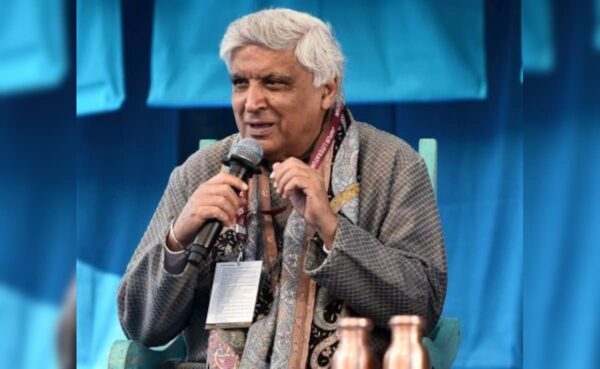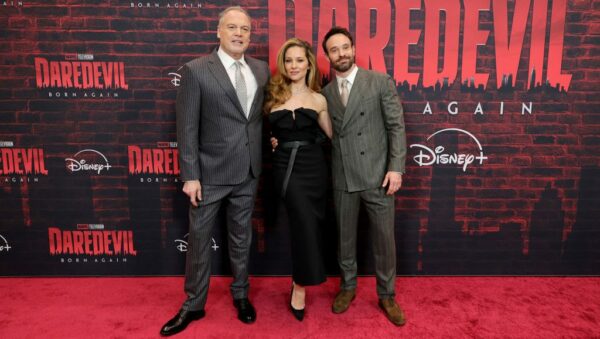Challengers To Babygirl, The Movies On Sex And Desire That Oscars 2025 Couldn’t Handle
5 min read
Many films that did not make the cut were, without a doubt, critically acclaimed, with standout performances that many had pegged as “Oscar-worthy”
As the dust settles after the 97th Oscar nominations, a stark pattern seems to have emerged: films that dealt with sexual themes, boundary-pushing depictions of intimacy, and performances that bravely explored sexuality have been notably left out.
Despite much recognition and praise for the actors involved, these films failed to secure the nominations many expected. This raises an essential question: Is the Academy still scared of sex?
The absence of sexually explicit films or those that dealt with sex in bold and confronting ways from this year’s Oscar nominations shows a growing gap between artistic expression and what Hollywood – especially the Academy – seems willing to honour. Many films that did not make the cut were, without a doubt, critically acclaimed, with standout performances that many had pegged as “Oscar-worthy”.
Yet, in a year where the Academy has shown pride in itself on being more inclusive and progressive, some movies – despite their honest, often raw exploration of human sexuality – were dismissed.
The movies the Oscars couldn’t handle
Take, for instance, Babygirl, in which Nicole Kidman plays a corporate boss who explores her sexual desires through an affair with a much younger intern.
The film boldly engages with themes of sexual power dynamics, vulnerability and desire. The actress’s performance was lauded but she did not make it to the nominations.
A still from Babygirl
Similarly, Queer featured Daniel Craig as a lovelorn gay man whose physical expressions of lust are central to the film’s emotional core. He too was left out of the nominee list.
A still from Queer
Then there’s Challengers, the much-talked-about film led by Zendaya. A heady mix of sexual gamesmanship, tension and desire, the film had all the ingredients to make it an Oscar contender.
Its electrifying score, boundary-pushing screenplay and Zendaya’s impressive performance should have at least garnered a nomination at the 97th Academy Awards. But in a season where blockbuster films like Wicked and Dune: Part Two dominated the conversation, Challengers faded into the background.
A still from Challengers
And what about Nosferatu, an audacious Gothic tale that explored lust at the precipice of death? It too didn’t earn the Best Picture nomination some had speculated it might.
Films like The Last Showgirl starring Pamela Anderson as Shelly, a fading burlesque dancer trying to maintain her relevance in a youth-obsessed world also failed to make the cut.
A still from The Last Show Girl
This film, like others this season, wrestles with themes of ageing, desirability and the complexities of sexual identity in a world that values women’s bodies less as they grow older.
The exclusion of these films is puzzling, especially in light of the praise (awards and nominations) many of these performances garnered throughout the season. Their omissions suggest that the Oscars, once again, are unwilling to engage fully with sexual narratives – especially those that put sex up front and centre.
Steve McQueen was right, the Oscars are still ‘sex-phobic’
This issue is not new. In fact, it echoes comments made by Shame director Steve McQueen back in 2012. When Michael Fassbender’s acclaimed performance as a New York sex addict in Shame failed to earn an Oscar nomination, the filmmaker blamed what he saw as an inherent fear of sex in American cinema.
He told Associated Press, “In America, they’re too scared of sex, that’s why he wasn’t nominated. If you look at the best actor list, you’re saying, ‘Michael Fassbender is not on that list?’ It’s kind of crazy. But that’s how it is; it’s an American award, let them have it.”
Steve McQueen and Michael Fassbender
Steve’s critique holds water even in 2025. The American film industry and its prestigious awards show seem to recoil from depicting sex as a natural and integral part of the human experience.
While Hollywood readily embraces violence, conflict and even extreme gore, it remains hesitant when it comes to portraying sex and sexual desire in an authentic, raw and uncompromising way.
In an age where Oppenheimer – a historical drama about nuclear war – earned accolades for its depiction of sex, it’s worth questioning why more intimate, explicitly sexual films that confront human vulnerability head on still struggle to find their place in the Oscar race.
The Oscars’ blind spot: Choosing violence over sex
At the heart of this issue is a longstanding resistance in Hollywood to embracing the multifaceted nature of human sexuality. While films in the past have depicted sex with nuance and honesty – think The Graduate, Eyes Wide Shut or Basic Instinct – there has been a growing sense that the modern Oscar race finds such portrayals distasteful or unnecessary.
And yet, films that engage with these themes – often written and directed by women – are providing a much-needed counterpoint to an industry that has spent decades underplaying sexual power dynamics, especially in relation to women.
The emergence of films like Maria and Nightbitch, which explore themes of ageing, power and the commodification of women’s bodies, are part of a broader movement that examines the consequences of societal expectations around sex.
A still from Maria
Yet, with critical acclaim and powerful performances, these films have been ignored by the Oscars.
When sex gets left on the cutting room floor
Perhaps the most telling part of this year’s Oscar omissions is the exclusion of Challengers, a film that dared to be fun, sexy and unapologetically emotional.
Challengers earned acclaim for its writing, direction, and Zendaya’s performance – but it wasn’t enough to receive the recognition it deserved.
A still from Challengers
But here’s the thing: Challengers was fun and that’s now almost a kiss of death in the Oscar race. The Academy has become so fixated on “important” films that it’s neglecting the middle ground – the place where adult dramas, those centred on real human desires and emotions, used to thrive.
If the Oscars don’t have room for sex, what do they have room for?
So, the question remains: if the Oscars don’t have room for these films, then what kind of movies are they willing to recognise? The Oscars have made room for large-scale spectacles and precious, self-serious indie films, but the mid-budget adult drama is increasingly becoming a relic of the past.
The Oscars should be a reflection of the diverse ways in which stories can be told – sex included – but until the industry becomes willing to embrace sexuality in all its forms, it risks remaining out of touch with the real, lived experiences of its audience.
If the Oscars continue to shy away from films that depict sex honestly, we must ask: what’s left for them to celebrate? The films that were left out this year speak to a larger issue: Hollywood, and by extension the Oscars, has a lot of growing up to do when it comes to its treatment of sex. Until that changes, the Oscars will remain in the uncomfortable position of choosing artifice over authenticity.







